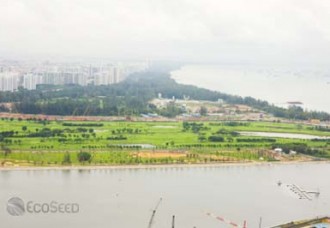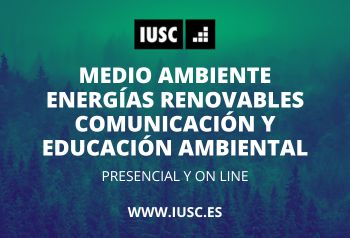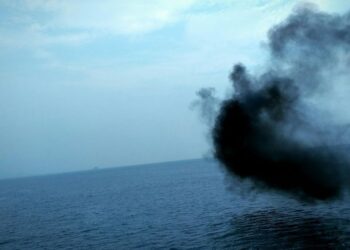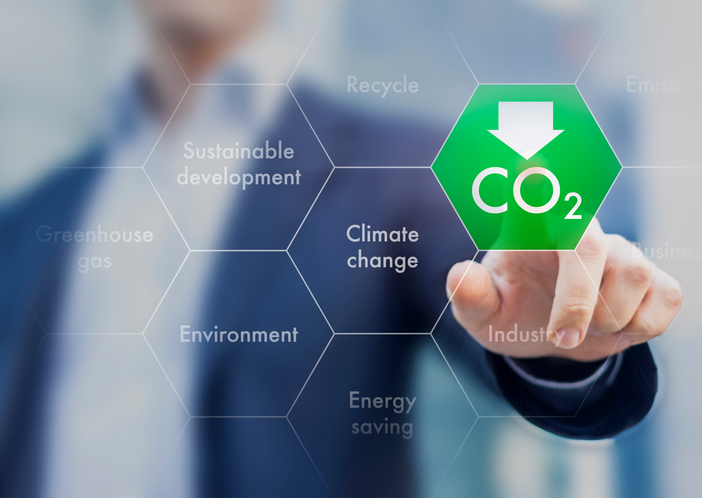The haze covering the island country of Singapore has been in the headlines for quite some time now, creating much buzz on an environmental issue that other countries too have experienced.
It was on June 21, Friday that Singapore had experienced the worst of the haze with the Pollution Standard Index reaching a record 401 – deemed very hazardous. The following days saw a lowering of levels, but as of now it is still deemed very unhealthy. All the while, Singapore and Indonesia have been holding emergency talks on how to deal with the situation.
What a lot of people don’t know about the haze is that it actually happens annually. This annual haze is caused by the yearly agricultural practices of Indonesia, specifically in Sumatra and Kalimantan, where the land is cleared through burning.
This issueis not a surprise to all of the countries that experienced the haze as it has been the subject of debate of the Association of Southeast Asian Nations for some time now. What is a surprise to Singapore is how early land clearing activities were being done this year and the intensity of the haze that was produced.
With the issue still a hot topic amongst affected countries and the world being a spectator as to what will happen next, there are a lot of questions being raised on the matter of the haze – what exactly is it? What causes it? What are its implications? And what can be done about it?
According to the United States Environmental Protection Agency, a haze is formed when light encounters tiny particles of pollution that is in the air. These particles absorb light while at the same time scattering light away. This absorption and scattering of light is the one responsible for reducing the clarity of color and visibility.
Another name that this haze can be called is particulate matter pollution. Particulate matter pollution can cause serious health risks such as asthma, acute respiratory symptoms, chronic bronchitis, shortness of breath, reduced lung function, and even premature death. These health risks are the reason why there was a surge in demand for face masks, specifically the N95 surgical mask which filters large and small particles that are in the air, in Singapore.
In addition to the health risks, particulate matter pollution’s effects on the environment are something that should not be brushed aside. According to the South Carolina Department of Health and Environmental Control, particulate matter can; increase the acidity and alter the nutrient balance of the bodies of water affected; deplete nutrients in soil and groundwater; damage forests and farm crops; puts diversity of ecosystems at risk; not to mention the effect of the emitted greenhouse gases into the atmosphere.
Particulate matter pollution is known to come from natural occurrences such as windblown dust and wildfire soot. Manmade occurrences that contribute to this sort of pollution are industrial fuel burning, manufacturing operations, motor vehicles, and land clearing through burning.
Singapore, Indonesia, and Malaysia are not the only countries that have experienced a haze this year. Just this January, some regions in China, such as the cities of Beijing and Tianjin, the provinces of Hebei, Henan, Shandong, Shanxi, and Jiangsu, were covered in haze.
According to a blog by the Natural Resources Defense Council, “The usual suspects are pollution such as sulfur dioxide and nitrogen oxide from coal combustion, which provides 70 percent of China’s energy and 80 percent of its electricity, and is primarily used by coal power plants, heavy industry such as iron and steel and cement factories.”
Presently, the only way of clearing up the haze is to wait for winds to carry it and for rains to disperse it – a solution that countries should not be banking on. That is why there is much need for policy makers to address this issue, reducing greenhouse gas emissions and placing stringent sanctions on activities that will create occurrences such as the haze, this will then effectively prevent them from happening again.













